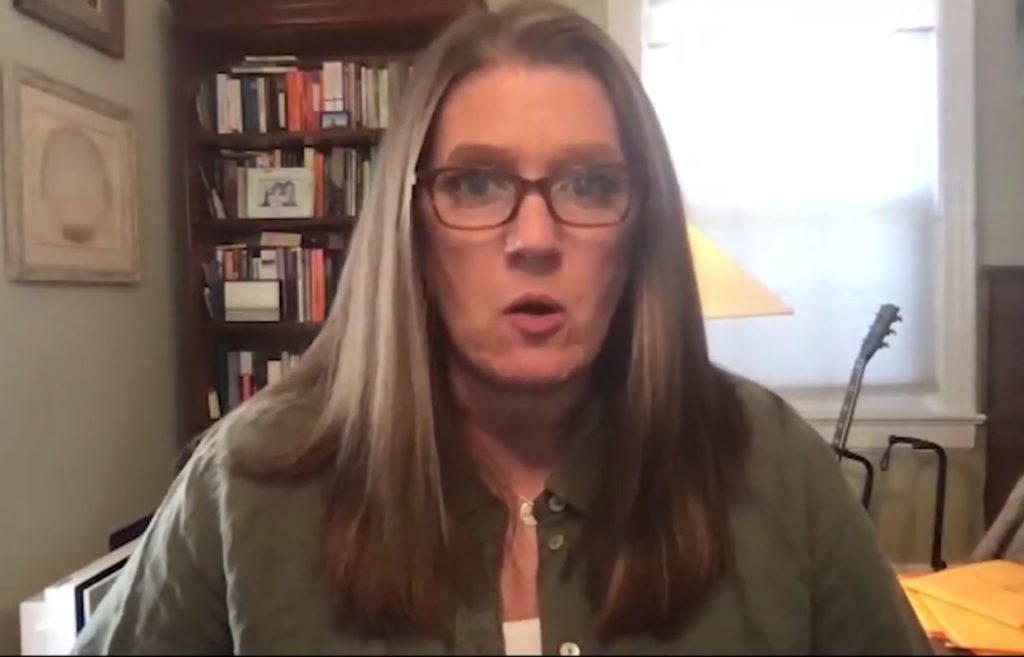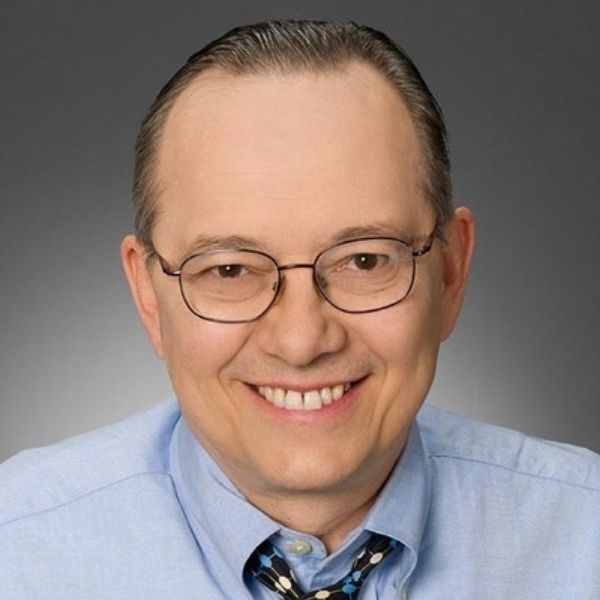In Part 5 of Our ‘Inside the Mind’ Series, Psychiatrist Bandy X. Lee Talks with Psychologist Mary L. Trump about ‘The World’s Most Dangerous Man’
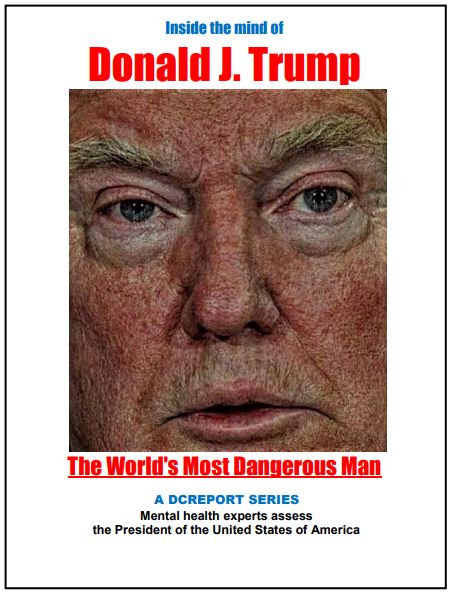
In this exclusive interview of Dr. Trump by a fellow mental health professional, they discussed the pathologies of Donald Trump’s originating household, his culpable homicide of thousands of Americans and the silencing of experts. (See the video of their conversation.)
This is the fifth and final installment of DCReport’s “Inside the Mind of Donald J. Trump: The World’s Most Dangerous Man.” You can read Part 1, Part 2, Part 3 and Part 4.
Lee tells DCReport: It feels as if the contributors to “The Dangerous Case” have come full circle with Mary Trump’s book: Our independent public health analysis at the beginning of the presidency meets her intimate household observations at the end of this term, in a seamless expert consensus. But it was dismay at the lack of focus on her expertise that got me started. This was the impetus of our DCReport series, “Inside the Mind of Donald J. Trump.”
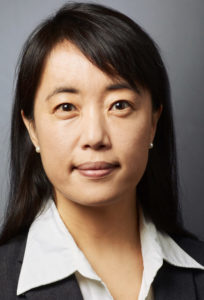
Mary Trump is the antithesis of her uncle in almost every respect. To the extent that he is a superficial con man, she is deeply authentic and brave in examining herself. To the degree that he inflates himself to an unreal demigod status at the slightest granting of power, she remains humble and grounded, no matter her sudden catapult as a towering figure in the literary world and perhaps in the history of nations (for what other leader’s outspoken family member was also a psychological expert?). Most exceptionally, she is willing to step up to do what is right, in spite of her natural inclinations.
“I think we are both shy speakers,” I started—to which she smiled broadly—“who feel compelled to do this because of the gravity of the situation and the professional responsibility we feel.” I had planned to thank her for coming forth, in ways I could not encourage the most established and most senior members of my field to do, when they are far less vulnerable, but they had their positions, pensions, and established reputations to protect. This presidency has been for me, as no doubt for the nation at large, a series of disappointments in our institutions.
Dr. Trump, by contrast, was a refreshing and welcome surprise. And yet she was busy appreciating and elevating me: “Well, you know, I am so grateful for what you have been doing….”
Here is an excerpt of our conversation:
Lee: I was enormously impressed with the professionalism and the clinical prowess you brought to your own situation with your family and your uncle, which is not easy to do. When did you realize it was not you and your father who were “a mess,” but Donald Trump himself?
Trump: It took a really long time because you grow up in this atmosphere that seems totally the way it is, and you do not understand how it might be different from other families. The other complicating factor for me, personally, was that by the time I was born, the man my father had been, the self-made professional pilot, the man who had many, many friends who adored him, no longer existed.
Trump is directly responsible for the death of thousands of Americans, which could have been avoided if he had just taken responsibility.
I think getting disinherited was kind of a tipoff, so to speak. It was not just that I got disinherited, it was the way in which my grandfather wrote his will. I was not even named in the will. I was referred to as “the issue” of Fred C. Trump Jr., my father, and it was so breathtaking, the ease and the thoroughness with which I was excised from the family. So, I stopped having anything to do with the family for a long time.
Also throughout my training as a clinician, I learned a lot about how to look at systems like families and pathologies and developmental issues, et cetera. Distance and training, I think, helped a lot, although it was not until I started writing the book that I really got in touch with some things that I, honestly, wish I had not had to.
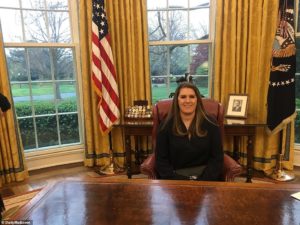
You were wondering why more mental health professionals were not speaking up. Did you know that we had, at one point, raised this issue to the number one topic of the national conversation? And then the American Psychiatric Association stepped in and basically blocked us from all major media. What do you think of the fact that our society is literally dying at this point from lack of access to expertise?
I think it is a total condemnation of the trend in the last few decades to undermine the necessity of expertise and to devalue science. I think, even more fundamentally, it starts with the West’s bizarre need to separate physical and mental health from each other, and then the weird double standard that it is okay to talk incessantly about a candidate’s physical wellbeing or lack thereof, but not at all their mental health or lack thereof—especially considering whether or not somebody has a bout of pneumonia is not going to endanger the planet, whereas if you have somebody with Donald’s myriad psychopathologies, and look at where we are.
Follow more of Dr. Lee on Twitter, @BandyXLee1, or her new web site: bandylee.com
One of the huge services you provided with your work is making it clear that there is plenty of evidence to support the assessments of him. It is not like you are talking about somebody we know nothing about: he has been a public figure for a very long time, and the data are there. Especially when people from very diverse orientations or backgrounds come to the same conclusions, that has a lot of explanatory power.
Now, with the pandemic, having epidemiologists silenced or belittled, and apparently Dr. Fauci is now getting death threats. I think that is something that Donald has done in order to change the subject from his own utter incompetence.
You said in your book, “Vladimir Putin, Kim Jong-un, and Mitch McConnell, all of whom bear more than a passing psychological resemblance to Fred, recognized … that Donald’s checkered personal history and his unique personality flaws make him extremely vulnerable to manipulation.” Why do those traits make him so dangerous, and do you see it also between him and his followers?
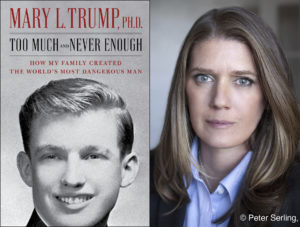
It is one of the most horrifying aspects of all of this, the way the patterns repeat and how something that happens in a closed system like a family becomes magnified on a societal level. I mean, it is quite mind-boggling, and I think we all have our work cut out for us. I know that work has been done in terms of authoritarian personalities and that sort of thing, but there is such a one-to-one correspondence here, that it is unnerving. When I first started writing the book, that was the first thing that struck me: that there are several through-lines from my grandfather to the Republican Party and the cult followers.
The stressors are unimaginable… Imagine the energy it takes him when he is supposed to be the best and winning everything all the time… The danger inherent in being faced with his inadequacies is astronomical.
Obviously, if Donald were not in the Oval Office I would not have referred to him as “the most dangerous man in the world.” The stressors are unimaginable, because it is not just the job, which he does not even do, quite honestly. It is the bad news that he is surrounded by, and on a deep level, he understands that he is not at all the person he pretends to be. So imagine the amounts of energy it takes him when he is supposed to be the best and winning everything all the time. To hide that, not just from other people but from himself—the danger inherent in being faced with his inadequacies is astronomical.
Even though my grandfather died twenty years ago, whenever Donald is talking about he is the best, he is the greatest, whenever he is starved for attention and compliments and the rally crowds, what he is really doing is speaking to his audience of one, which was my grandfather, and saying, “You know, Dad, I am the best, I am the winner, do not kill me.”
You mentioned in one interview that he could be charged with negligent manslaughter, and I would agree. In fact, I believe he meets the criteria for culpable homicide. Whether that is manslaughter or murder depends on “the guilty mind,” the mens rea, that we evaluate in forensic psychiatry or psychology. But we do have someone who is responsible for tens of thousands if not hundreds of thousands of deaths through wrongful conduct.
That is why, in the book, I do not come out and diagnose him because my point is, who cares what his diagnosis is? Look at what he is doing, and look at how his behavior is shaping the behavior of the people around him. That is the problem. If we had a patient who was an imminent threat to herself or others, we would be required by law to do something. This man is directly responsible, and I agree with you, there is culpability and purpose here. He is directly responsible for the death of thousands of Americans, which could have been avoided if he had just taken responsibility.
Would you like to give any last word?
Listen to people who know. Listen to the professionals. Listen to the experts. Listen to the people with the expertise, who have spent years and decades of their lives, honing their skills as professionals, who understand these things, and pay attention to what he is doing, and look at those behaviors through the lenses we are offering.
Featured image: Mary L. Trump (bandylee.com)


